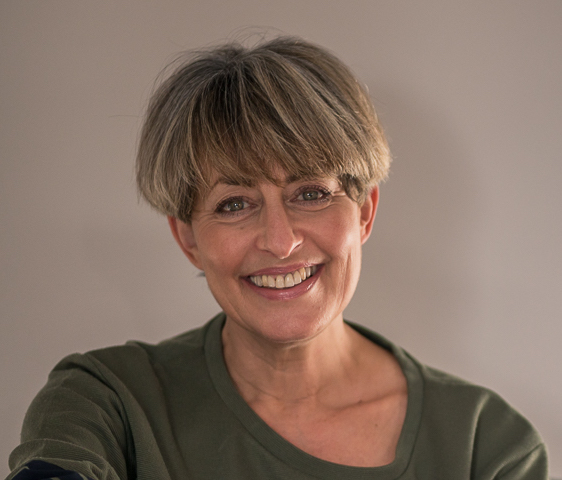How to age well
I muse over, and write a good deal about the business of ageing here at Heydays. Specifically ageing into older age - because obviously ageing is something all of us who are lucky enough to, are experiencing at every age. Indeed I started These Are The Heydays after I left my job as Editor of Woman’s Weekly, precisely because I wanted to create a resource and a community where we could share the journey into older age in the most positive, rewarding and enjoyable way possible.
I’m aware that at 64 (I wrote HERE how I feel about reaching my Beatles birthday) I’m in the foothills of older age, and that ageing in my generation doesn’t look - or feel? - the same as it did in my mother’s or grandmother’s, but I am also acutely more aware of the fact that I’m absolutely no longer middle aged and of the incremental proximity of what is considered old, rather than just older, age.
Interesting new study
I was therefore intrigued to read this week, about a new study done in Germany which suggests that as life expectancy has increased, so has our perception of when exactly it is that old age starts. Using data collected from more than 14,000 Germans born between 1911 and 1974, who were asked - amongst many other questions in eight surveys over the course of 25 years - “At what age would you describe someone as old?”, the study found that those born more recently felt that old age kicked in later. So when participants born in 1911 were 65 (in 1976), they thought old age set in at 71. Whilst participants who were 65 in 2021 reckoned the shift began at 74. And that as people get older their perception of the onset of old age pushes back. So whilst at 64 the average participant said that old age started at 74, participants who were 74 generally felt it began at 76.
I posted about this on the Heydays Facebook group (if you’re not already a member, do join us. It’s a lovely, entertaining, supportive place where I guarantee you’ll find lots to enjoy and chat about) and it prompted a lively response, much of it reflecting on the impact that our health and personal circumstances have on both our perception and our experience of being older and old. Unsurprisingly, the survey analysis concurred, finding that people who reported being more lonely, or in worse health, thought old age began earlier than those who were more connected and in better health.
A brilliant book
The impact of our lifestyle and health on ageing are expertly and though-provokingly explored by Camilla Cunningham in her seminal book Extra Time, 10 Lessons For An Ageing World, which I wrote about in THIS BLOG and which I would really recommend you read if you haven’t already. As increasing numbers of people around the world are living longer lives, Camilla writes about the need to challenge our notions of ageing and find ways for individuals and society to make the most of the ‘Extra Time’ we have. (Read in the blog about two fantastic age-positive initiatives she discovered, one in Japan, one in Africa).
With so much division and debate on so many issues, it’s heartening to discover that experts in ageing - Camilla included - are in vigorous agreement about the key principles and practices for aging well and living life - however long it lasts, but especially in older age - to the full.
Embrace a positive mindset
How we perceive aging has a huge impact on how we experience it. Instead of seeing it as a period of decline, think of it an opportunity for growth and self-discovery. Focus on the things you're grateful for and the experiences that bring you joy. A positive outlook can significantly enhance your overall well-being and quality of life as you age.
Prioritise your physical health
Taking care of your body couldn’t be more important as you age. Regular exercise, balanced nutrition, and adequate sleep are fundamental for maintaining physical health. As I’m always saying (repetitive? Moi?), doing regular exercise not only helps to keep your body strong and flexible, but also improves your mental clarity and emotional well-being. The easiest way to do this is to incorporate activities you enjoy - walking, swimming, yoga, or dancing for example - into your daily schedule. Your ageing body and brain will thank you for it.
Stay socially connected
Human connection, which is important at every stage of life, becomes even more vital as we age. Maintaining strong social connections can help combat loneliness and isolation, both of which are common among older adults. Make an effort to stay connected with friends, family, and your local community. Join clubs, volunteer, or participate in group activities that align with your interests. Building and nurturing relationships not only enriches your life - and the lives of all those people lucky enough to connect with you - they also provide a sense of belonging and purpose….
Find meaning and purpose
…. which is another essential component for a fulfilling life, regardless of, but especially as we, age. Take time to reflect on what matters most to you and what brings you a sense of fulfilment. Maybe that’s pursuing hobbies, volunteering, spending time with loved ones, or having new adventures. Finding purpose in your daily life gives you with sense of direction and motivation, which in turn contributes to a greater sense of satisfaction and contentment as you age.
Cultivate mental agility
Keeping your mind sharp is crucial for aging well. Find ways to challenge yourself with mentally stimulating activities such as puzzles, reading, learning a new language, or taking up a new hobby. Engaging in lifelong learning not only keeps your brain active but also fosters a sense of curiosity and creativity. Also it’s been found that practicing mindfulness and meditation can help reduce stress, improve cognitive function, and enhance overall mental well-being, so consider incorporating that into your life if you can.
Embrace change with resilience
If we know nothing else once we get to older age, it’s that nothing stays the same forever. Or sometimes, even for very long. At our later stage in life we have inevitably encountered changes and challenges, both physical and emotional. The ability to embrace change with resilience and adaptability is the other age-well contributor we would do well to develop. Accept that change is a natural part of life and focus on what you can control. Keep reminding yourself about the need for self-compassion and forgiveness, and be kind to yourself as you navigate life's ups and downs. Cultivating resilience will enable you to recover from inevitable setbacks and embrace new opportunities with courage and optimism.
As one of the lovely Heydayers in the Facebook group wrote “Age is a mindset” so I hope this blog has helped to set your mind in the most positive direction possible. Happy ageing!
Other posts you’ll enjoy
A quiz about the realities of the second half of life





